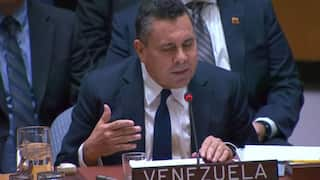Explorer
In UP, there is no en bloc 'Muslim Vote' or 'Muslim Veto'

Representational Picture
The myth of “Muslim vote” is on the wane in the ongoing Uttar Pradesh Assembly election.
Five rounds of polling end today yet there is no clear pattern of voting among Muslims in over 300 Assembly constituencies of Uttar Pradesh except for a common cause against the BJP.
“Pahle bhai, phir Sapai (SP), phir BJP harai (First the co-religionist, then SP and then defeat the BJP) is a catchphrase that is heard all over the state.
In this context, the presence of the BSP’s 97 Muslim candidates is posing a formidable challenge to the Samajwadi Party and Congress alliance. Then there are a number of “Muslim” parties in the fray such as the Majlis-e-Ittehadul Muslimeen (MIM), Welfare Party and Peace Party of India. In 2012, Peace Party had won four Assembly seats.
It is an open fact that Muslims are not homogeneous in either their identity or political thinking. A broad division among Muslims on caste, economic activity, linage and sects makes the community as diverse as the majority community in the country.
Words like jati is replaced by zat (caste) while sub-identities such as jamaat (economic group), nasab (lineage) and firqa (sect) have firm roots in Muslim society.
The Pathans of Rohilkhand for instance still divide themselves between Jalalabadis and Qandharis in all matters ranging from marriage to voting. The sectarian divide between Shias and Sunnis, Deobandis and Barelvis has been equally polarising.
Lucknow has had a history of a section of Shia Muslims voting for the BJP when Atal Bihari Vajpayee and Lalji Tandon used to call the shots. In post-independence India, Uttar Pradesh has not had a full-scale communal riots but violent clashes; riots and curfew were annual features in Lucknow due to Shia-Sunni feud.
Both Mulayam Singh Yadav and Mayawati were able to spot a sharp divide between those Muslims claiming to be Ashrafs (nobles) and Ajlafs (common persons) and successfully courted Ansaris, Qureshis, Mansooris, Saifis and dozens of other influential economic groups. Their political loyalties have been both fluid and opportunistic. Till date, most non-BJP parties have failed to consolidate upon them.
For the first time in many years, Muslim religious institutions like Darul Uloom Deoband and Nadwa-tul-Ulema (Lucknow) have taken a firm call to keep their seminaries out of Uttar Pradesh elections. The Rectors of these institutions have issued strict instructions to their in-house clergy and politically inclined maulanas to either stay away from politics or campaign in their private capacity.
Yet, it took BSP supremo Mayawati one full day from 9 am to 6 pm at a Lucknow hotel to meet various Muslim religious groups and individuals, requesting them to support her.
In fact, the Samajwadi Party-Congress alliance was also stitched up due to pressure from a section of the Muslim clergy such as the Imam of Lucknow's Idgah Maulana Khalid Firangimahli. When talks between SP-Congress broke down on a particular January 2017 evening, Firangimahli and few others reportedly prevailed upon Ghulam Nabi Azad and in turn Rahul Gandhi and Sonia Gandhi to accept whatever Akhilesh Yadav was offering.
Similar pressure was applied on the Samajwadi Party Chief Minister to consider Congress demands when he had reportedly stopped taking calls from senior Congress leaders.
After five rounds of polling, the politically inclined Muslim clergy is worried, wondering if the March 11 outcome would go the Assam way where the BJP emerged on top in spite of a substantial Muslim electorate.
The voting pattern of Muslims in Western UP, Rohilkhand and parts of Awadh has been such that the BSP, some RLD and smaller parties candidates have a fair share of votes instead of Muslim votes going en bloc for the Samajwadi-Congress alliance.
Community leaders point to the 2014 general election when for the first time in its electoral history, Uttar Pradesh did not send a single Muslim MP to the Lok Sabha.
Muslims candidates drawing nil in 80 Lok Sabha seats had come barely two years after the UP Assembly election had recorded the highest Muslim representation — 63 MLAs -- in 2012. According to the 2011 Census, 19.26% of Uttar Pradesh’s population is Muslim.
Disclaimer: The opinions, beliefs and views expressed by the various authors and forum participants on this website are personal and do not reflect the opinions, beliefs and views of ABP News Network Pvt Ltd.
Follow Blog News on ABP Live for more latest stories and trending topics. Watch breaking news and top headlines online on ABP News LIVE TV
View More


























